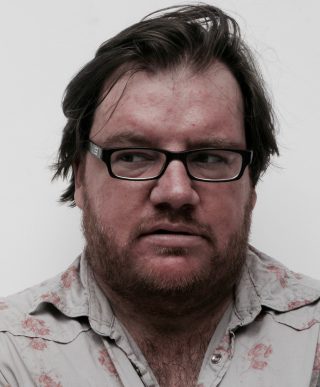 Photo: Sinan Antoon's professor page. I have a huge heart for the Middle East. If I didn't feel that God wanted me stateside, I would be serving in either Palestine or Iraqi Kurdistan with my hippie friends. I spent a lot of my high school years around the Palestinian community in Denver, and I increasingly grew fascinated with Middle East culture and politics. I visited Kurdistan in September of 2017 during their referendum for independence, and it's forever a special place to me. While I know I will be back to visit some day, poetry and prose from the Middle East has been a way for me to visit the region in my heart now. So far, my favorite writer to come from this part of the world is Sinan Antoon. Antoon is a scholar, novelist, poet, and translator who works for New York University. He graduated from the University of Baghadad and made his way to both Georgetown University and Harvard. He currently teaches Arabic fiction courses, as well as other Middle Eastern cultural studies. My minimalist style borrows a lot from writers like Jay McInerney and Cormac McCarthy, but I like to think the way I explore emotion and the impact of trauma was something I borrowed from him. It's an absolute crime he is not more well known among western audiences. A great place to start to read him would be the two novels that wrecked me most - The Baghdad Eucharist and The Corpse Washer. The first one, The Baghdad Eucharist, is about a Christian family reflecting on their heritage during the rise of ISIS. The second one, The Corpse Washer, is about a young man caught between wanting to be an artist and following the spiritual path of corpse washing according to Shi'a traditions during the Iraq War. What is compelling about Antoon's work is that it shows the devastating effects of war, but somehow he combines themes of redemption, spirituality, romance, and despair. He shows the worst and best of humanity in times of crisis in a way that is fresh to my own western perspective. If you've ever wondered what it was like to be caught in the crossfire of war or conflict, his work shows the complexity of emotions involved for people who weren't directly involved in the wars. For instance, the grandfather in The Baghdad Eucharist longs for the days where Saddam Hussein has a friendlier attitude towards Christians. There's no doubt in anyone's mind that Hussein was a monster. But what makes the feeling complex is that the grandfather longs for the days where he felt safer because the dictator didn't focus on his own ethnic-religious group. A lot of westerners don't seem to understand that Hussein had a complex relationship with Christians, going as far as to donate $500,000 to a Chaldean Catholic church in Detroit. Antoon invites us into a seemingly dangerous emotion to feel. For most westerners, this a feeling that is largely alien. We have never been put into a position of being forced to be politically neutral for our own survival. Adeed Dawisha, a professor at the University of Miami, shares: “Under Saddam, it was understood that if you don’t interfere in politics, then you are provided with a good life... If the Christians supported Saddam, not because they loved what he was doing, it was the fear of the alternative." (source) During this time, Saddam was leading a genocide campaign against the Kurds with weapons bought from the United States. There were concentration camps set up to eliminate people who rose up against the regime. To this day, Kurds are still being discriminated against and oppressed by the Iraqi regional government - and now the Christians have been thrown into that bunch as well due to the elimination of Saddam. The Iraq War directly contributed to the ongoing persecution of Christians in the Middle East. While I was there, a comment was made to me that: "During Saddam, there was just one dictator. After Saddam, there are a thousand." There are layers to this too. That's not even going into the historic cultural tensions between Syriac Christians and Kurds due to the Armenian and Syriac genocides. Whenever there is a consistent history of colonialism and oppression, you can count on layered cultural conflicts. What Antoon does brilliantly is capture those complexities and makes them understandable for an American like me. I don't walk away from the writing ignorant. Rather, I walk away with a deeper appreciation for the fragility and beauty of life. This type of storytelling could only come from someone like an Iraqi writer. I still will flip through those novels whenever I am looking for an emotion that is hard to describe. The depth and journey of the characters is one I could not personally go on, but I have learned to the empathize and grow alongside them. If a writer's duty is to tell and show the truth painfully, then Antoon has done his job - and he has done it well. I look forward to reading more of his work as it gets translated and released. (Side note: Antoon also helped to translate Mahmoud Darwish's poetry book Unfortunately, It Was Paradise - one of my favorite poetry collections ever.)
0 Comments
Leave a Reply. |
 RSS Feed
RSS Feed
